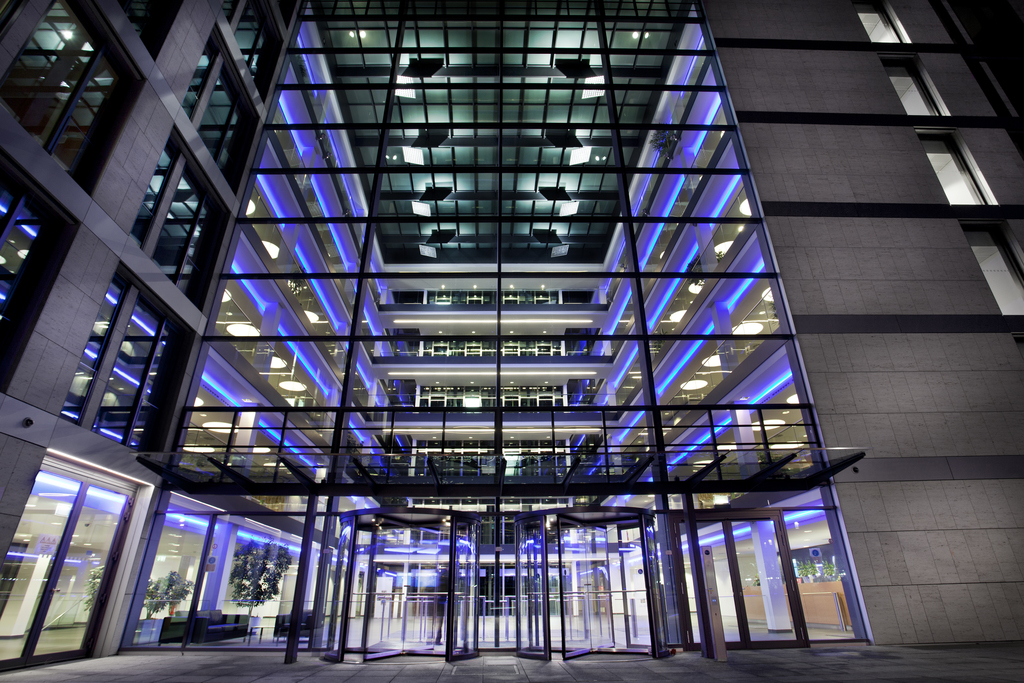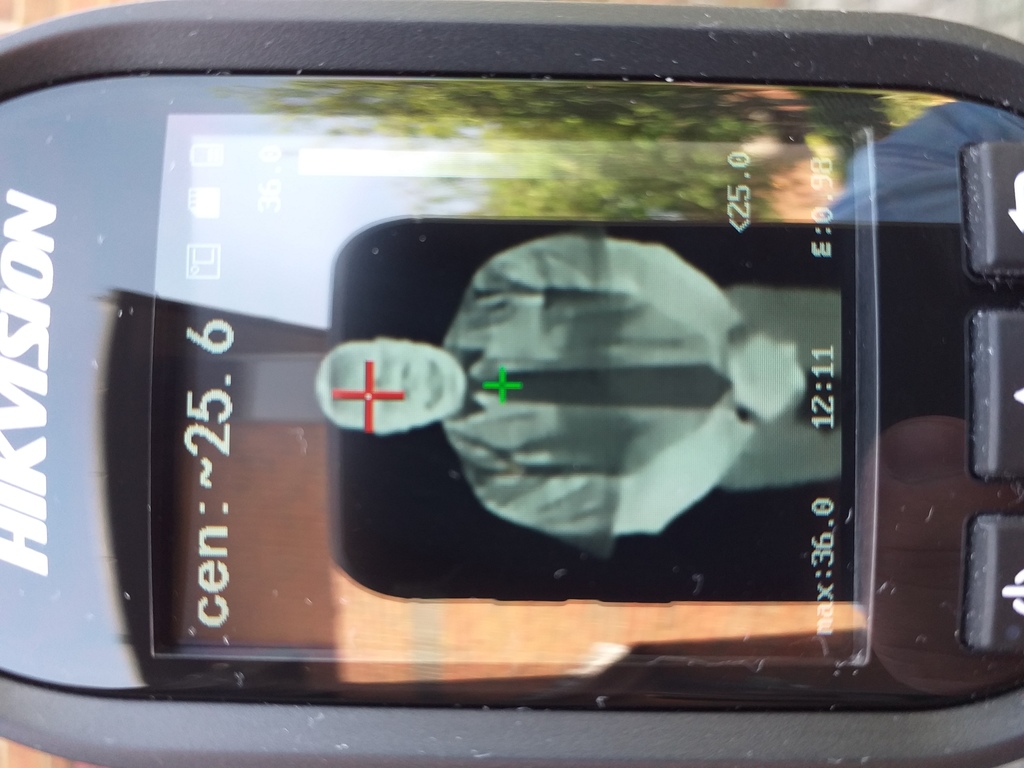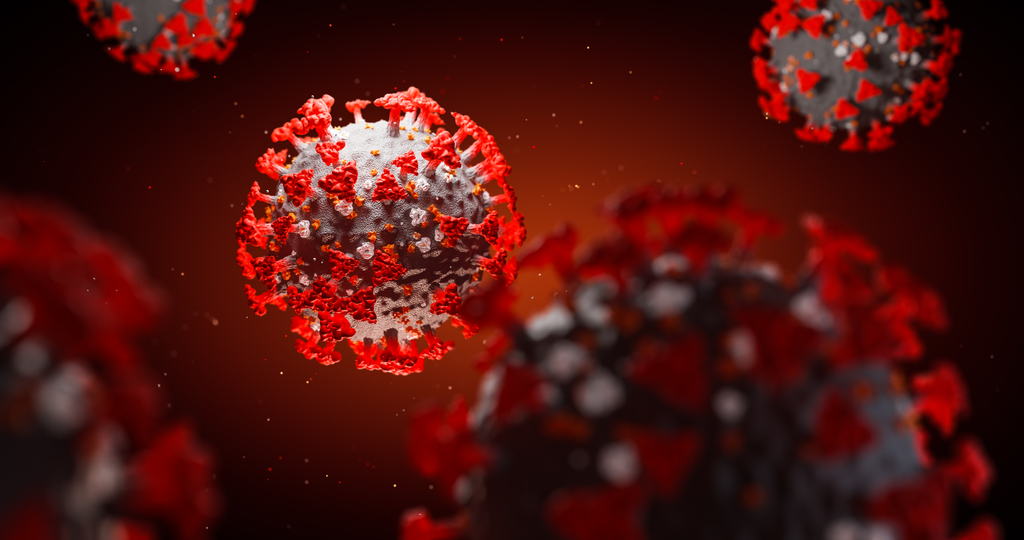
Brian Sims
Editor

Brian Sims
Editor
The role of the security officer is changing to manage the ‘new normal’. Mike Bullock reviews how today’s officers are taking a leading role in the implementation of new technology and processes and enforcing social distancing measures to protect people from the silent threat of COVID-19
COVID-19 HAS changed the role, responsibilities and priorities of security companies and their employees. Since lockdown began, security officers have enforced social distancing, managed empty buildings and, of late, advised on their reoccupation. As that reoccupation gathers pace in the coming weeks and months, security officers will play an important role as the first point of contact in buildings, reassuring employees and visitors that they’re safe to enter.
Historically, security providers focused on the security of people, buildings and assets. However, the emphasis has now shifted somewhat. Security officers are now responsible for people’s health and well-being, too. The pandemic has changed what it means to be and feel safe. Even basic health is no longer guaranteed. To manage scenarios successfully in this new paradigm, security officers will need to use new technology and put virus-secure measures in place to protect people from the Coronavirus/COVID-19.
Over the years, we’ve seen the security officer transform from a typically silent figure in the background to become a multi-skilled professional. Pre-Coronavirus, the role was seen as three-fold: it combined security guarding, technological expertise and Front of House responsibilities. Now, as stated there are the extra dimensions of health, safety and well-being.
Security officers are quickly becoming the ‘face’ of an organisation’s COVID-19 management, but this is a new and very different responsibility from security of days gone by and the impact on the host organisation in terms of whether this is managed effectively or not is huge.
New roles and responsibilities for the security profession in tackling the pandemic and securing a safe ‘new normal’ are numerous. For the reoccupation of buildings, in many cases the security officer will be the first person people will see after several months away. It’s the officer’s duty to take the time to explain how new security and access control systems work, talk people through new technology such as thermal imaging cameras and reassure them that the building is safe. People need peace of mind that their well-being will be looked after in the premises so a friendly and welcoming face is key.
Health checks
Just one incident of COVID-19 could shut down a whole building if access and movement isn’t managed correctly. Security officers will need to take the lead in approving the health status of visitors by performing temperature control checks. This is a huge responsibility. If the process is transacted incorrectly this will pose a threat to every other individual in the building.
Some people will be happy to submit themselves to temperature checks, but others will not. Security officers will also need to deal with sensitive situations that may affect temperature readings such as pre-existing health conditions or temperature rises caused by other factors like stress or medication. This will be a challenging task requiring a high level of diplomacy and customer care.
Security officers will also be responsible for managing a log of who enters and exits the building and when and where they’ve been. Accuracy will prevent outbreaks of the virus. It’s key that the log is not only actioned on a day-to-day basis, but also kept secure and easily accessible for the client and building management team in case of an emergency. Each client will have their own guidelines in place about which visitors or contractors are permitted on site and the security officer will be responsible for ensuring adherence to them.
During lockdown, security officers have helped to plan reoccupation and social distancing rules. Now that buildings are being occupied again, officers become responsible for enforcing these measures. They will need to be even more vigilant about movement and continually educate a building’s occupants.
Due to lift capacity restrictions, many officers are manning lifts for the first time in years. Others are working on occupied floors, near washrooms, meeting rooms and in staff restaurants to ensure that people abide by the social distancing rules. Safety comes first, but there will always be people who believe the rules don’t apply to them. This presents a new type of conflict that security officers must be equipped to deal with.
Service reviews
Clients will all be recovering from lockdown with the degree of change it has brought, with some experiencing more dramatic alterations than others. Certain buildings have gone from having 10,000 people occupying them to just a few hundred, so security solution providers will need to re-evaluate their clients’ requirements to accommodate that situation. There will never be a ‘one-size-fits-all’ answer.
In some cases, buildings that are solely reliant on CCTV or facial recognition access will need to be supported by more security officers. For other buildings, monitoring might be the best solution. With clients necessarily becoming more budget-conscious, commercial effectiveness is more important than ever. Security officers will need to work even more collaboratively with FM teams and building management, developing tailored solutions that are right for this journey to the ‘new normal’.
Low building occupancy rates will result in the re-planning of office space and the closing-off of certain areas. This could result in vast swathes of spaces being locked off and secured. In some instances, these spaces will no longer need to be entered or cleaned, but it will be the security officer’s role to keep them secure. This will require clear lines of communication with FM teams such that everyone is reading from the same hymn sheet and security officers can ensure sufficient protection is in place.
Sadly, some buildings will not re-open at all. In these instances, however, the asset will still need to be secure and security officers will need to present sensible solutions, support client-made decisions and prevent anti-social behaviour from taking hold.
Upskilling and training
As the security officer’s role changes, so will the skills they need to do their job effectively. This will include better training and upskilling in technology, people management, customer care and Health and Safety.
Temperature checks may result in officers subsequently refusing people entry to a given facility. This may cause anger and dissatisfaction, particularly so where senior management or VIPs are concerned, so officers need to know how to deal with ‘pushback’ scenarios effectively. Officers need to be personable, sensitive and diplomatic and recognise when individuals are unsure, nervous or stressed.
This will continue to be a sensitive and challenging job. Aside from entry authorisation and marshalling social distancing, officers will need to deal with internal conflict. Some people are relaxed about catching the virus, whereas others are quite anxious. Security officers are caught in the midst of these two extremes and will need to diffuse volatile situations while keeping everyone safe.
Security officers have been on the front-line of this virus since day one. Their importance was demonstrated when the Government gave them key worker status. Sadly, fighting on the frontline of the pandemic saw many security officers lose their lives.
Back in May, the Office for National Statistics (ONS) published data revealing that security officers have one of the highest death rates from COVID-19 at 45.7 deaths per 100,000 people. The ONS data made for difficult reading for the security profession. We wanted to know why security officers were so affected by the virus so we could better support and protect our people. To that end, Corps Security commissioned a report from Perpetuity Research and Consultancy International looking into the factors that may be contributing to security officers having one of the highest death rates of any occupation.
The report revealed that the very nature of the role of security officers influences their risk to COVID-19. Being a front line key worker may mean encountering conflict when trying to enforce COVID-19 guidelines. This may make social distancing more difficult. Officers also have to touch equipment and technology others have handled on a regular basis and may find it difficult to ensure they carry out frequent handwashing.
We’ve incorporated the insight from this analysis into our training programme to ensure Corps Security’s officers know how to protect themselves.
Value versus cost
As stated, businesses are tightening their financial belts as a result of COVID-19 and the effects of lockdown. When the Government’s furlough scheme ends in October, we can expect to see an even bigger financial push to drive costs down. Cost efficiency will be critical, but cannot be to the detriment of health, well-being and safety. Safety should always come first.
Of late, we’ve hosted and attended a number of reoccupation-focused webinars. Interestingly, no procurement professionals attended the sessions, yet the way products and services are procured will be vital to safeguarding the Health and Safety of building occupants. Procuring services based on rock bottom prices cannot be the main driver because the cost of business interruption will be far greater.
Businesses have faced significant disruption already. In some cases, the effects have been irreparable. Going forward, the best course of action is to look at the bigger picture and consider value above ‘cheap’ to protect people, buildings and assets.
Risk, threat and disruption are part of the security sector’s everyday lexicon. There’s going to be a new world order for security when this pandemic is over. Humans have proven to be the weak point in the security chain. Technology, like CCTV, has proven to be unaffected. That being so, we’ll see a shift towards more tech-based security operations. There will still be a physical presence, but organisations will want smaller, more highly-skilled, trained and better paid teams who complement that technology.
The pay for security officers has remained stubbornly low in some sectors considering how much expertise is delivered. The designation of security officers as ‘critical workers’ during the pandemic has influenced a change in perception, but this needs to be reflected in remuneration. Paying the Living Wage attracts a more skilled employee and increases their motivation and productivity. This is not a time when the industry can afford to fall foul on any of these elements.
Once this situation is over, the hope is that individuals and organisations will have more respect for people in security roles. Security professionals will become more skilled and highly-trained. Technology will go on to have an ever-increasing role to play in keeping the built environment secure and, in parallel, the reputation of the security officer will be enhanced.
Mike Bullock is CEO at Corps Security (www.corpssecurity.co.uk)



Market House
85 Cowcross Street
LONDON
EC1M 6PF
UNITED KINGDOM
0800 0286 303